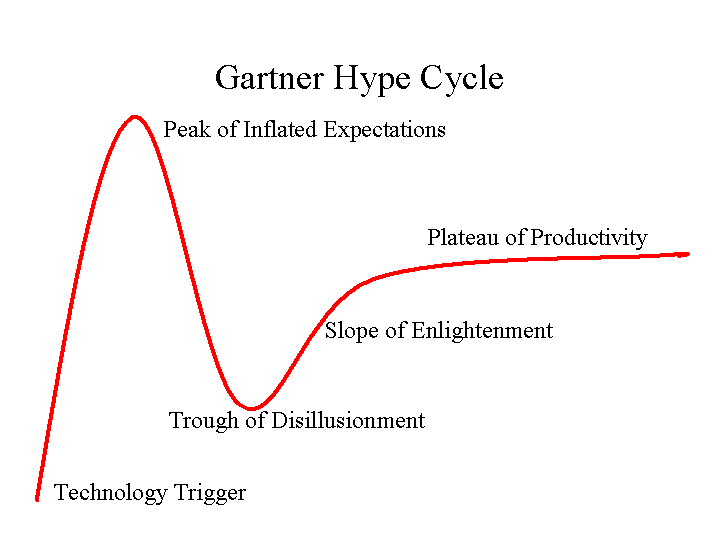30 Nov 2011 (as always pardon the typos)
My post yesterday resulted in some good feedback. Theme was “are you bank friendly…? Stop telling me about what does not work.. how about recommending what does!” My previous blogs covered a number of lessons learned.. so today I’ll give my view on What Does Work as Banks attempt to extend their existing business models. Your feedback is certainly appreciated..
As background.. here are my previous related blogs
What Works?
Well perhaps the first step is to frame the objective.. what does the Bank want to accomplish? For simplicity let’s reuse yesterday’s example: a Bank Groupon. What is the Bank’s objective? Maximize revenue? Of the Groupon Unit? Of the Corporation? Given the recruiters response.. it would seem that maximizing the revenue of the Corporation is the focus and their method is control. The Bank emphasizes control because it has significant uncertainty on entity and outcome.
Example BankGroupon Conversation “we have no idea how this thing will play out.. we have a number of the assets necessary to make BankGroupon a success and should be able to put something together.. so hey lets give it a try.. get some leader in here that has some experience in a big bank.. and some with start ups.. lets see what he proposes”.
Banks are the best institutions in the world at managing investment and risk. When a bank contemplates an investment in another company, it is certainly appropriate for them to assess the business model, the team, the environment and price the risk. This ability to make and manage investments is much different than an ability to run a NON CORE business and react to market forces (Elephants don’t dance). While banks may have individuals in their company with these skills.. these employees did NOT develop the skills within the bank.
There is an obvious need to decouple the Bank Asset (customer data), Capital, and Entity that executes the plan. Commercial and Investment banks have tremendous experience in structuring entities that separate a bank asset and capital. Bonds, SPVs, CDSs, CDOs, … these vehicles not only allow banks to move assets off balance sheet, but they also allow investors to take different tranches of risk and even insure/hedge against loss. The first stage of these commercial bank activities is defining the underlying asset (with appropriate continuity and underwriting in portfolio).
“Asset Definition” is the critical piece I believe is missing in structuring most bank owned NewCos. If the business is core.. keep the asset in house. If it is non-core.. define it and let someone else go maximize it within covenants.
CEO Prospect – Approach
In the BankGroupon example, if I were a prospect CEO here is how I would approach the task.
1) Define the bank asset (non monetary).
What is the bank contributing? BankGroupon is a separate company. What is the operating agreement between the 2 entities. Optimally this asset would be a 10 yr exclusive agreement to sell pre-paid offers leveraging bank data. Just as with Bonds, SPVs, the agreement would have covenants to protect the bank in certain events, as well as MUTUAL performance guarantees. This operating agreement would be the central asset around which the business would be formed. The focus of a NewCo CEO would be to ensure that this operating agreement is sustainable and fine tune the covenants. Can I build a sustainable business off of this asset?
Operating agreements are NOT easy to create, they require much thought and planning. However, these agreements HAVE BEEN the core asset of many successful bank driven entities (Visa, MA, Early Warning, Clearing House, …). Quite simply, it defines the asset, how it can be used and also governs the roles of other entities in participation. If you happen to meet one of the bankers/lawyers that were involved in the creation of any of the operating models above.. they would probably say it was like 2 years in North Korea. By not creating these agreements, the Bank has shifted the burden of defining the asset AND building the business to NewCo. Ask any recent bank spin off CEO and they will tell you their lives were like 2 years in a place much hotter than North Korea. Spin offs have very little leverage to influence asset definition AFTER they have taken the capital.
This is my central point.. and should probably stop here.. but let me finish up a few other thoughts. I see the prospect bank CEO and the bank investment lead (future BOD member) working on this for a year or so. During this time.. the CEO comp is heavy on cash with an incentive if bank cancels or funding is successful. Just as with Capital markets folks.. lining up investors for a $200M offering.
2) Capital to start the business.
My next job after obtaining the right operating agreement is to get Capital. What is the path toward revenue and what will it cost me to get there? Most Banks have taken approach of supplying all of the capital.. or perhaps partnering with one other big organization. Since the source of capital drives the direction of the business it is very important to have CEO drive source and mix. For example, BankGroupon needs to attract retailers.. Retailers don’t like banks.. and Banks don’t understand Retailers. Having an entity that is 100% controlled by a bank is not a great sales asset. I would want a clear path to reducing Banks control to under 50%… and gaining investors who are retailer friendly. I would do this by either converting Bank stock to non-voting, non bank investors, or other commitments.
Wrap up for now
I could probably write a book on this.. but won’t bore you with the diatribe. There is no shortage of talent interested in running a bank owned Groupon. But most of these CEO prospects haven’t had to survive in a bank owned company/consortium before. The high failure rate of bank driven start ups is because banks have not taken the time to define the asset and separate it from the capital. If a BankGroupon is core to the business.. it should remain in the business. If it is not core, and you have assets to leverage.. define the asset and let someone else grow it.
Your feedback is appreciated.. I’m sure there are several of you that think this viewpoint is insane.. but hey.. sometimes great ideas are generated from dissecting insane ones.
Best


